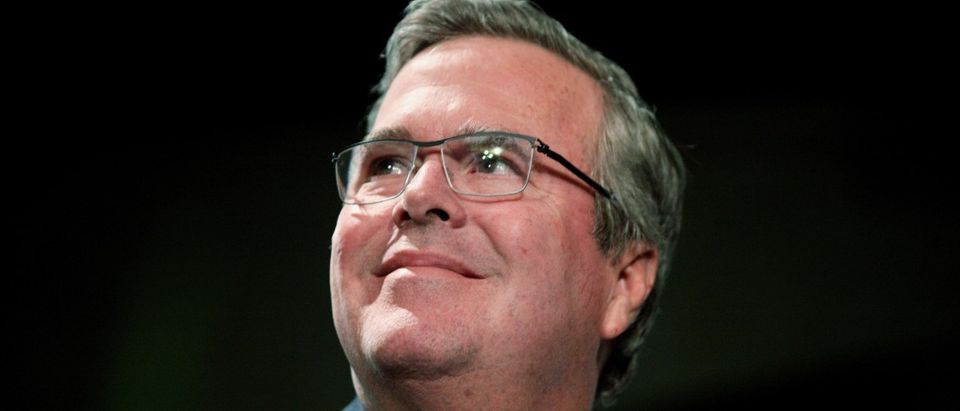In 2015, the Jeb Bush campaign experienced the longest steady decline in modern electoral history. Unable to capitalize on overwhelming advantages in name ID and fundraising, he went from undisputed front-runner to the bottom-tier. After garnering a disappointing three percent in the Iowa Caucus, many were questioning, not whether he’d win, but how long he could stay in the race.
This is why it is remarkable that Jeb finds himself in position to win the South Carolina primary tomorrow, which could launch the most epic campaign comeback in modern history.
That’s right, to the surprise of many, Jeb bounced back, earning an impressive fourth place finish in New Hampshire, jumping over the biggest roadblock between he and the establishment lane: Marco Rubio. In any other race, fourth place is not worth celebrating. But as we’ve learned, this race is far from ordinary, due in large part to Donald Trump, who leaves the rest of the field scrambling for second and third place in their attempt to consolidate the remaining two “lanes.” Bush did not need to get first, second, or even third, he just needed to beat Rubio, and he did.
Just days later Jeb performed in his best debate of the campaign, and he did it in South Carolina a week before the state’s primary. It was the kind of debate Jeb needed to reassure establishment donors and voters alike that he is better fit to run against Trump and Cruz, especially as Rubio has recently shown vulnerability.
Bush delivered some much-needed blows to Donald Trump during the debate, most notably, that “Ronald Reagan did not tear people down, Reagan tore down the Berlin wall.” But his best line of the night came in response to Trump’s attack on his brother, declaring, “while you were doing a reality TV show my brother was keeping the U.S. safe,” which was met with emphatic applause. And it was received so well because his brother, former President George W. Bush, is still a beloved and well-respected figure among South Carolina Republicans, many of whom are current or former members of the military.
This is why the Jeb campaign chose South Carolina to call on W. — the love and admiration for him is still felt in the state. With the addition of his mother Barbara and the respected senior Senator Lindsey Graham by his side, for many older Republicans nostalgia for the good old days take over, resulting in a shift in support from Trump to Jeb, which will be in evidence Saturday night.
When Trump went so far as to blame G.W. for September 11th, he was met with resounding disapproval throughout the auditorium. Shifting from one bizarre statement to another, Trump then went on to praise Planned Parenthood in an awkward defense of his past support for the organization. Such statements might pass in a state like New Hampshire, where candidates find a more libertarian-leaning constituency, but it will not sit well with a largely pro-life Republican primary base.
While Trumps support did not erode in NH, it did in Iowa. Trump’s vote count did not match the polls in Iowa because social conservatives dominated the caucus. Demographically, South Carolina Republican voters more closely reflect Iowa than New Hampshire. But while there are roughly 200,000 more Evangelical primary voters in South Carolina than in Iowa, these voters tend to vote for more moderate candidates. Case in point: Lindsey Graham, who South Carolina Republicans did not support for president but do, however, admire as senator. This why his endorsement, in addition to the Bush family’s relentless campaigning throughout the state, could provide the boost necessary to top Rubio, and perhaps Trump.
Trump supporters are more moderate voters, who may feel that Trump crossed the line with his attacks on G.W. and more inclined to jump to his brother Jeb. Additionally, voting trends reveal many of these voters are likely to feel more comfortable with Bush than the more conservative and inexperienced Cruz and Rubio. Furthermore, Jeb will likely pick up Kasich supporters as it becomes more apparent that a vote for Kasich, with no infrastructure or strategy in the state, is virtually meaningless.
For Jeb to be successful in South Carolina, he must show to moderates that he is a more viable candidate than Rubio, and hope that G.W. can secure for him just enough of the Evangelical vote to carve out a winnable chunk of the electorate.
Many people respect Jeb Bush, many believe he would make an excellent President, a good showing in South Carolina may give those who know this, but worry about his electability, more confidence in his chances, which is what has been missing in Jeb’s campaign: confidence.


